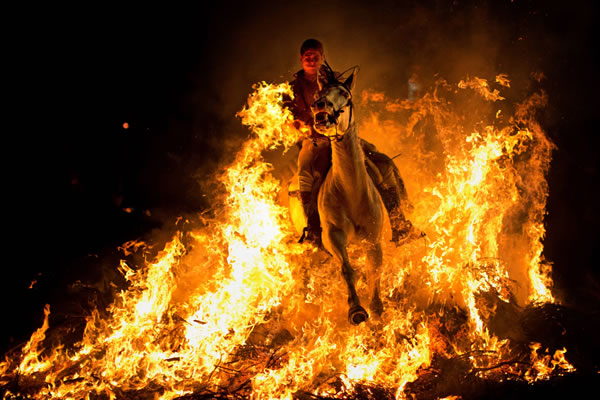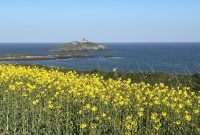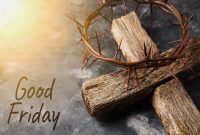Photo was taken in San Bartolome de Pinares, Spain by Emilio Morenatti
The feast of St Anthony took place during the week. A man rides a horse through a bonfire as part of a ritual in honour of Saint Anthony, the patron saint of animals, in San Bartolome de Pinares, about 100 km west of Madrid, Spain last Thursday. On the eve of Saint Anthony’s Day, hundreds ride their horses through the narrow cobblestone streets of the small village of San Bartolome during the “Luminarias,” a tradition that dates back 500 years and is meant to purify the animals with the smoke of the bonfires and protect them for the year to come.
Thought on Sunday – January – 19/01/2014
Thought For Today is by Jane Mellett
In today’s Gospel, John the Baptist is inviting us to look at Jesus, look closely. He calls Jesus the ‘lamb of God who takes away the sins of the world’. We say these words often at Mass and today we are invited to meditate on them more closely. What does it mean? The lamb is one who is sacrificed, the sins of the world are many, broken relationships with one another at every turn. Today we are asked to think especially of Refugees and Migrants and the sins committed against them. The treatment of these groups who are marginalised, exiled from their homes due to war, famine, drought, unemployment is often unjust and is part of what Pope Francis refers to as a culture of ‘slave labour’. These outcast groups are frequently treated with disrespect, racism, condemnation and resentment. How can we reconcile these situations?
Pope Francis’ message for today may guide us closer to understanding the message of John the Baptist in the Gospel: ‘Migrants and refugees are not pawns on the chessboard of humanity. A change of attitude towards migrants and refugees is needed on the part of everyone, moving away from attitudes of defensiveness and fear, indifference and marginalisation – all typical of a throwaway culture – towards attitudes based on a culture of encounter, the only culture capable of building a better, more just and fraternal world’. In the marginalised can we see Jesus coming towards us and say: ‘Look, there is the lamb of God’?




